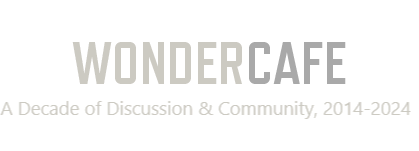revsdd
Well-Known Member
When my daughter was a teenager she wanted to attend the funeral of a friend's father. As it happens, it was her first funeral. I received a very solid piece of advice from my minister which was to accompany my daughter to the funeral. My minister's reasoning was that first funerals are extremely formative.
The minister in question was She Who Will Not Be Named whom I have been known to criticize on other fronts. But I certainly appreciated her wise counsel on this occasion.
"She Who Will Not Be Named." Oh come on, paradox3. I'm trying to write my Easter sermon. This is a break for me every now and then, and you're leaving me with these cryptic words to puzzle out. I won't be able to concentrate on Easter anymore. Who is "She Who Will Not Be Named"? I have no clue. This will be bugging me for the rest of the day now. Forget Easter. You've really ruined my sermon writing with this mystery. I hope you're proud.
